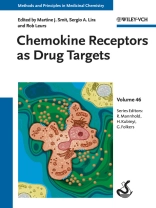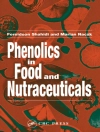Chemokines are hormone-like signaling molecules secreted by cells to signal infection and guide the immune response. Following a decade of basic chemokine research, the pharmaceutical industry has now begun to exploit this crucial signaling pathway for the development of innovative drugs against AIDS, cancer, neural and autoimmune diseases. Here is the first reference focusing on these novel drug development opportunities.
Opening with a general introduction on chemokine function and chemokine receptor biology, the second part covers the known implications of these signaling molecules in human diseases, such as cancer, neural disorders, and viral infection, including AIDS. The third part systematically surveys current drug development efforts at targeting individual chemokine receptors, as well as other chemokine interaction partners, including up-to-date reports from the pharmaceutical industry.
Inhaltsverzeichnis
FUNDAMENTALS OF CHEMOKINES AND CHEMOKINE RECEPTORS
Structural Aspects of Chemokines, and their Interactionss with Receptors and GAGs
Structural Insights for Homology Modeling of Chemokine Receptors
Signaling Events Involved in Chemokine-Directed T Lymphocyte Migration
The Atypical Chemokine Receptors
Targeting Chemokine Receptor Dimers: Are there Two (or More) to Tango?
CHEMOKINE RECEPTORS IN DISEASE
Chemokine Receptors in Inlammatory Diseases
Chemokines and their Receptors in Central Nervous System Disease
Chemokines and Cancer Metastasis
Constitutively Active Viral Chemokine Receptors: Tools for Immune Subversion and Pathogenesis
TARGETING CHEMOKINE RECEPTORS
CCR5 Antagonists in HIV
CXCR4 as therapeutic target
Low-Molecular Weight CXCR2 Antagonists as Promising Therapeutics
Therapeutic Targeting of the CXCR3 Receptors
Targeting CCR1
Targeting CCR3
Chemokine-Binding Proteins as Therapeutics
Über den Autor
The editors are based at the Amsterdam Center for Drug Research, a cross-disciplinary center in the Dutch academic system, but with numerous ties to pharmaceutical companies.












